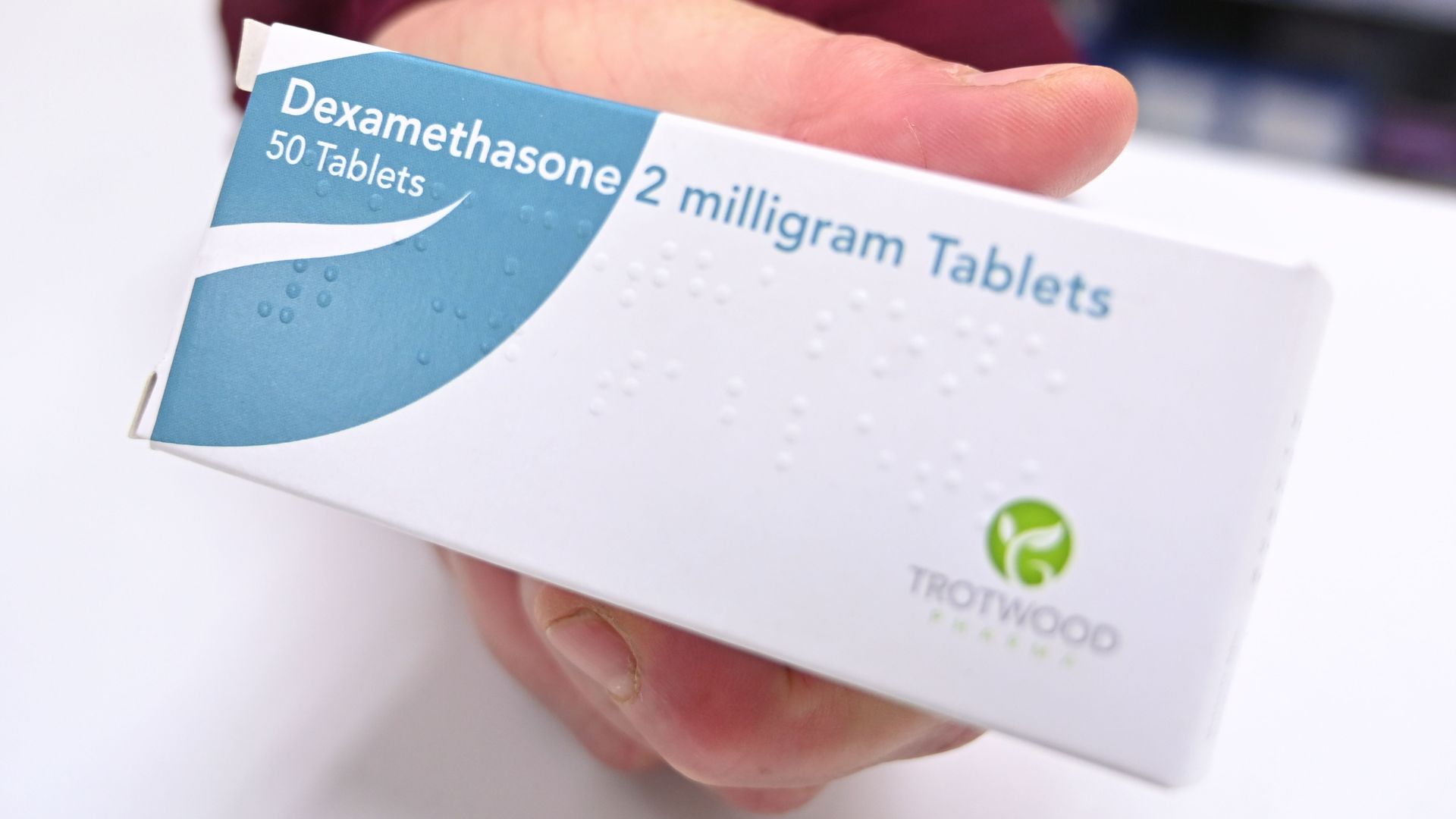Jun 17, 2020 - Health
Dexamethasone is creating cautious optimism
Add Axios as your preferred source to
see more of our stories on Google.

Dexamethasone is on the World Health Organization's "essential medicines" list. Photo: Justin Tallis/AFP via Getty Images
